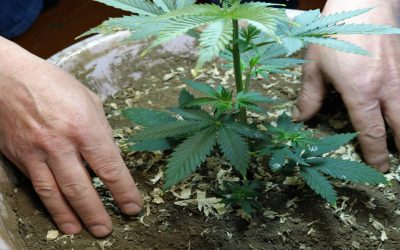Drug tests check for cannabis, which is also called marijuana, weed, or pot, by looking for THC and its byproducts. THC can show up in blood or saliva within 2-24 hours after someone uses it. Tests on urine and hair can find THC up to 1-90 days after use.
How Long Does Cannabis Stay in Your System? THC is a big part of cannabis. It’s what drug tests check for. These tests look for THC and its leftovers in your body, even after you stop feeling the effects of weed.
When you use cannabis, the leftovers stick to the fat in your body. This means it takes a while for them to leave, especially if you have more fat. How long it stays in your body depends on how much and how often you use cannabis. Using a lot or using it often means it stays longer.
Different tests can find it for different amounts of time. Blood and saliva tests find it for less time than urine or hair tests. Those tests can show cannabis use even months later, with some cases lasting more than 90 days.
Understanding the Detection Period of Various Cannabis Drug Tests
Urine tests
How long does marijuana stay in your system? The most usual method to test for drugs is through urine testing.
According to a review from 2017, cannabis can be detected in urine for different lengths of time after it’s last used:
- For one-time use, like smoking one joint, it can be detected for about 3 days.
- If someone uses it moderately, around four times a week, it might show up for 5 to 7 days.
- For those who use it every day, it could be detectable for 10 to 15 days.
- And for those who use it heavily every day, it might be detected for over 30 days.
Blood tests
Blood tests commonly identify recent marijuana consumption, typically within the past 2 to 12 hours. Nevertheless, in instances of frequent and heavy usage, traces can still be discerned up to 30 days post the last intake. Prolonged and intense marijuana usage extends the detection window even further.
Saliva tests
How long does thc last? THC can get into your spit if you breathe in smoke from someone else’s weed. But the stuff your body makes from it only shows up in your spit if you’ve smoked or eaten weed yourself.
Tests on your spit don’t work for long, and sometimes they only catch weed you’ve used on the same day.
A study from 2020 showed that even three days after smoking a lot, THC was still in the spit of people who smoked often. After using weed, it might stay in your spit longer than in your blood.
If weed is against the law where you are, cops might test your spit if they pull you over.
Hair tests
Hair follicle examinations have the capability to detect drug consumption for a period of up to 90 days. Following usage, cannabinoids travel to the hair follicles through tiny blood vessels, as well as from the oily secretions and sweat around the hair shaft.
Given that hair grows at a rate of about 0.5 inches per month, analyzing a 1.5-inch segment of hair taken near the scalp can offer insight into cannabis usage patterns over the preceding 3 months.
How THC Travels and Breaks Down in the Body
How long does weed stay in your body? When you smoke or consume cannabis, THC enters the bloodstream. Part of it gets temporarily stored in organs and fatty tissues. In the liver, THC undergoes breakdown, producing over 100 metabolites, with the most notable ones being 11-OH-THC and THCCOOH. Eventually, THC and its metabolites are eliminated from the body through urine and stool, with the duration of this process being influenced by the concentration of THC metabolites present.
Factors Influencing the Duration of THC and Its Byproducts in Your Body
Several things impact how long cannabis byproducts stay in your body. Some, like your weight and how fast your body burns energy, don’t have to do with the drug itself, but with how your body handles it.
Others are about cannabis and:
- How you use it
- How much you take
- How often, and how you take it, whether by smoking, eating, or other methods.
Taking more and using it often usually means it takes longer for THC and its byproducts to leave your system. If you eat cannabis, it might stick around a bit longer than if you smoke it. Stronger cannabis with more THC might also hang around longer.
How Can You Speed Up the Breakdown of THC and Its Derivatives in Your Body?
You can’t really make THC leave your body faster.
Your body needs time to break down THC once it’s in your system. Doing exercise, eating well, and drinking water might help a bit, but it won’t make a big difference.
Some websites sell products to help detox from weed. They often suggest drinking lots of water to make your urine less concentrated, and taking things like creatinine or vitamin B12 to hide it.
These products aren’t always trustworthy, and drinking too much water quickly can be dangerous.
How Soon Can You Feel the Impact of Marijuana?
When you smoke weed, the effects kick in right away. But if you eat it, it can take 1 to 3 hours for the strongest effects to happen.
THC, which is what makes you feel high, is the main thing in weed. It can make you feel different in these ways:
- Your senses might change, like how you perceive time.
- Your mood could shift.
- You might find it harder to think or solve problems.
- Your memory might not work as well.
Short-term effects of weed may include:
- Feeling nervous
- Being unsure or puzzled
- Having trouble moving smoothly
- Dry mouth and dry eyes
- Feeling unwell or dizzy
- Difficulty paying attention
- Feeling very hungry
- Heart beating fast
- Feeling uneasy or agitated
- Feeling sleepy
Sometimes, taking a lot of weed can lead to seeing things that aren’t there, believing things that aren’t true, or experiencing sudden mental disturbances.
Regularly smoking or consuming marijuana can potentially impact both your mental and physical health in various ways. Although research results vary, the use of cannabis may elevate the likelihood of experiencing:
- Cognitive deficiencies like memory decline
- Cardiovascular issues such as heart disease and stroke
- Respiratory ailments like bronchitis and lung infections
- Mood disturbances like depression and anxiety
Moreover, utilizing cannabis while pregnant can adversely influence the growth and development of the fetus.
How Long Does It Take for Cannabis Effects to Fade Away?
Short-term effects typically diminish within 1 to 3 hours, but the duration of chronic cannabis use effects remains unknown to researchers. Long-term effects could persist for days, weeks, or even months after cessation, with some potentially being irreversible.
FAQ
How Long Does THC Stay in the Body?
THC remains in the body for at least 1 to 30 days after the last use. Even after stopping, regular cannabis users may still have high levels of THC.
Will a Hit of Weed Show Up on an Urine Test?
Yes, according to a 2017 study, even a single use of cannabis can result in a positive urine test for up to 3 days afterward.
Will Weed Show Up in Any Urine Test or Sample?
No, only urine tests specifically designed to detect THC metabolites can reveal cannabis use.
How Long Does It Take to Detox from Cannabis?
The detox time varies based on how often someone uses cannabis. For heavy, consistent users, traces of THC metabolites may still be detectable in urine tests even more than 30 days after they stopped using.
Conclusion
THC and its byproducts can remain detectable in the body for varying periods, ranging from a few days to several months after ceasing cannabis consumption.
Various drug tests for cannabis have distinct detection thresholds. Typically, the duration of detection is prolonged with increased dosage and frequent use of cannabis.
Tests for THC and its byproducts only indicate recent cannabis usage within a specific timeframe. They do not ascertain present impairment levels.










0 Comments